UNF MedNexus Research Innovation Fund
2025 - 2026 MedNexus Research Innovation Fund Scholars
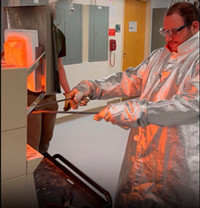
Dr. Nelson Delfino De Campos Neto, Mechanical Engineering
Computational design and experimental validation of new low elastic modulus biomedical alloys for implants
This project works towards the development of new metallic alloy compositions to be used as biomedical materials for implants. In special, it seeks for this new material to have elastic modulus similar to the bones to avoid post implant surgery complications, such as bone resorption and fracture. State-of-the-art computational material methods coupled with new theories will be used to search for new promising compositions to be produced and tested in the laboratory. In the future, the new materials discovered in this project could help to improve patient’s quality of life.
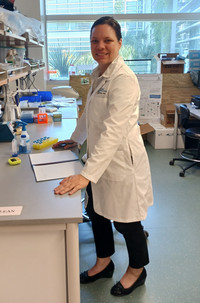
Dr. Marie Mooney, Biology
Improving Brain Health During Aging
This project aims to improve brain health during aging by studying how changes in certain enzymes affect the protective layer around blood vessels in the brain. Using advanced technology, we will identify key factors that could lead to new treatments for maintaining brain health as we age. Once we have prioritized key factors, we will use a rapid drug screening approach to test for therapies that restore function in the protective layer.
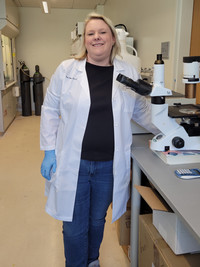
Dr. Terri Ellis, Biology
Defining the Selection Window: A high throughput assay to identify how low dose antibiotic exposure drives resistance
This project will investigate how altering the dose or the duration of exposure to low dose antibiotics stimulates the evolution of resistance in medically significant bacteria. We will answer these questions by measuring the changes to the bacterial DNA in response to these low doses. Fully understanding the minimum requirements for the evolution of antibiotic resistance will allow the medical community to better define clinical dosing protocols, guide environmental monitoring of antibiotics in the environment, and identify novel gene targets for new drug development.
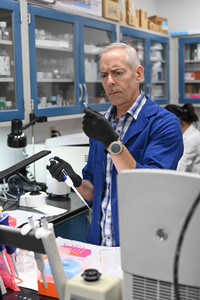
Dr. Kerry Clark, Public Health
Optimized Testing for Tickborne Infections in Chronic Lyme-Like Illness Patients in the Southern USA
This project will optimize the testing of human plasma and serum for tickborne pathogens. It involves testing samples from patients with chronic Lyme-like syndrome (LLSI), analyzing DNA sequence data to determine the genus and species, and comparing sequence variations. The data will be analyzed to characterize the presence of infections with various pathogen groups, species, and strains. The findings will be published in an open-access journal to enhance awareness among the medical and scientific communities.
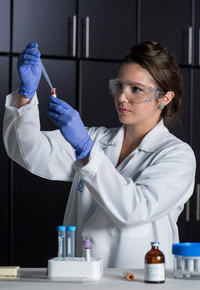
Dr. Angie LeRoy, Psychology & Brain Sciences
Developing & Testing the 'Writing to Heal' App: Uniting Health Research, Product Design & Technology
This project will address the extreme stress and prolonged nature of caregiving for a spouse with Alzheimer's Disease and Related Dementia (ADRD), often experienced as "living bereavement." Previous research has shown that severe grief symptoms in widow(er)s are linked to greater proinflammatory cytokine production, a risk factor for several diseases. Spousal caregivers experiencing living bereavement may also be at risk for cognitive decline, yet interventions are limited. Developing effective interventions is crucial to preserving caregivers' health and quality of life, as well as their ability to care for their partners.
